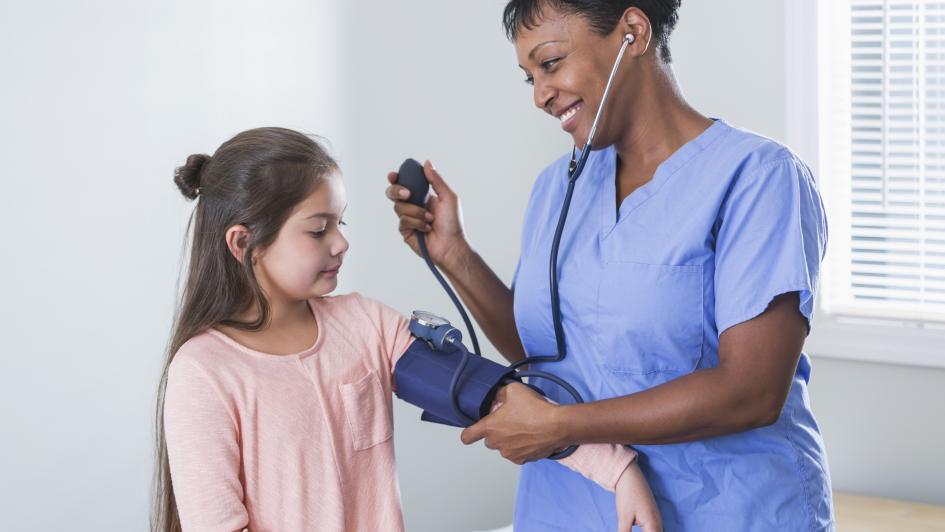Natural Approaches to High Blood Pressure

Published
Hypertension, or high blood pressure, is associated with many factors, including advanced age, obesity, family history, high sodium diet, physical inactivity and excessive alcohol consumption. Most cases of high blood pressure are idiopathic, meaning that the cause is unclear and likely from a combination of inherited and environmental factors that affect the heart and kidneys. Other hypertension cases have identifiable causes, including some prescription medications, street drugs, hormonal disorders, sleep apnea and heart or kidney issues.
Hypertension has many negative effects and is strongly associated with an increased risk of stroke, heart attack and kidney failure. One large study estimated that the risk of death from stroke or heart attack doubles with each 20-mmHg systolic and 10-mmHg diastolic increase above 115/75 mmHg. If you have been told that you have high blood pressure, or wish to prevent yourself from developing hypertension in the future, you should talk to your naturopathic doctor about healthy treatment and prevention strategies.
If you have normal blood pressure or prehypertension, these lifestyle modifications will help prevent you from developing high blood pressure in the future. If you have already been diagnosed with high blood pressure, following these steps will help you control your blood pressure, and in some cases lower it. These lifestyle methods can be considered even if you are already taking prescription medication for hypertension.
Food as Medicine
The DASH eating plan, which stands for Dietary Approaches to Stop Hypertension, is high in vegetables, fruits and whole grains and includes low-fat dairy, fish, poultry, beans, nuts and vegetable oil. It limits sugar-sweetened beverages and sweets and foods that are high in saturated fat. While the DASH diet alone can decrease blood pressure in some patients, combining it with sodium restriction has been known to result in blood pressure decreases that are comparable to those achieved with pharmaceutical interventions.
Aiming for and Maintaining a Healthy Weight
Weight loss in overweight or obese individuals can result in significant drops in blood pressure; these drops are proportional to the amount of weight lost. Exercise can be beneficial as well, even if it does not result in weight loss. Studies have shown that alcohol intake of more than two beverages per day for women or three beverages per day for men can significantly increase the incidence of hypertension. There are also many mind-body techniques that may be helpful to control or in some cases lower blood pressure, including meditation, breathing exercises and progressive muscle relaxation.
Hibiscus Tea
Hibiscus tea, or “Aqua de Jamaica,” is commonly prescribed as an unsweetened tea to treat arterial hypertension. In a randomized controlled trial, participants who drank hibiscus tea three times daily experienced a lowering of both systolic and diastolic blood pressure (SBP and DPB). There are many other herbs and supplements that have shown clinical efficacy in lowering blood pressure, but this condition should be managed by a health professional who can weigh the benefits and risks of any approach, and personalize a treatment plan for the whole person.
It’s important to realize that there are health risks to lowering blood pressure too much or too quickly, especially in the elderly and those with other health conditions such as diabetes, kidney disease, etc. Talk to your naturopathic doctor about his or her specific recommendations for what you can do to control or lower your blood pressure.
Cardiovascular wellness patients at Bastyr’s teaching clinics benefit from our holistic approach that emphasizes patient education about their condition(s), comprehensive lifestyle guidance, naturopathic perspectives on choices of medications, and recommendations for supplemental nutritional and botanical treatments. Schedule an appointment at our Seattle or San Diego clinic today.
Authored by Benjamin Hawthorne, ND, a first-year resident at Bastyr Center for Natural Health.
References
Brook RD, Rajagopalan S. 2017 ACC/AHA/AAPA/ABC/ACPM/AGS/APhA/ASH/ASPC/NMA/PCNA Guideline for the Prevention, Detection, Evaluation, and Management of High Blood Pressure in Adults. A report of the American College of Cardiology/American Heart Association Task Force on Clinical Practice Guidelines. J Am Soc Hypertens. 2018;12(3):238.
Lewington S, Clarke R, Qizilbash N, Peto R, Collins R. Age-specific relevance of usual blood pressure to vascular mortality: a meta-analysis of individual data for one million adults in 61 prospective studies. Lancet. 2002;360(9349):1903-13.
Muntner P, Carey RM, Gidding S, et al. Potential U.S. Population Impact of the 2017 American College of Cardiology/American Heart Association High Blood Pressure Guideline. Circulation. 2017;
Serban C, Sahebkar A, Ursoniu S, Andrica F, Banach M. Effect of sour tea (Hibiscus sabdariffa L.) on arterial hypertension: a systematic review and meta-analysis of randomized controlled trials. J Hypertens. 2015;33(6):1119-27.

